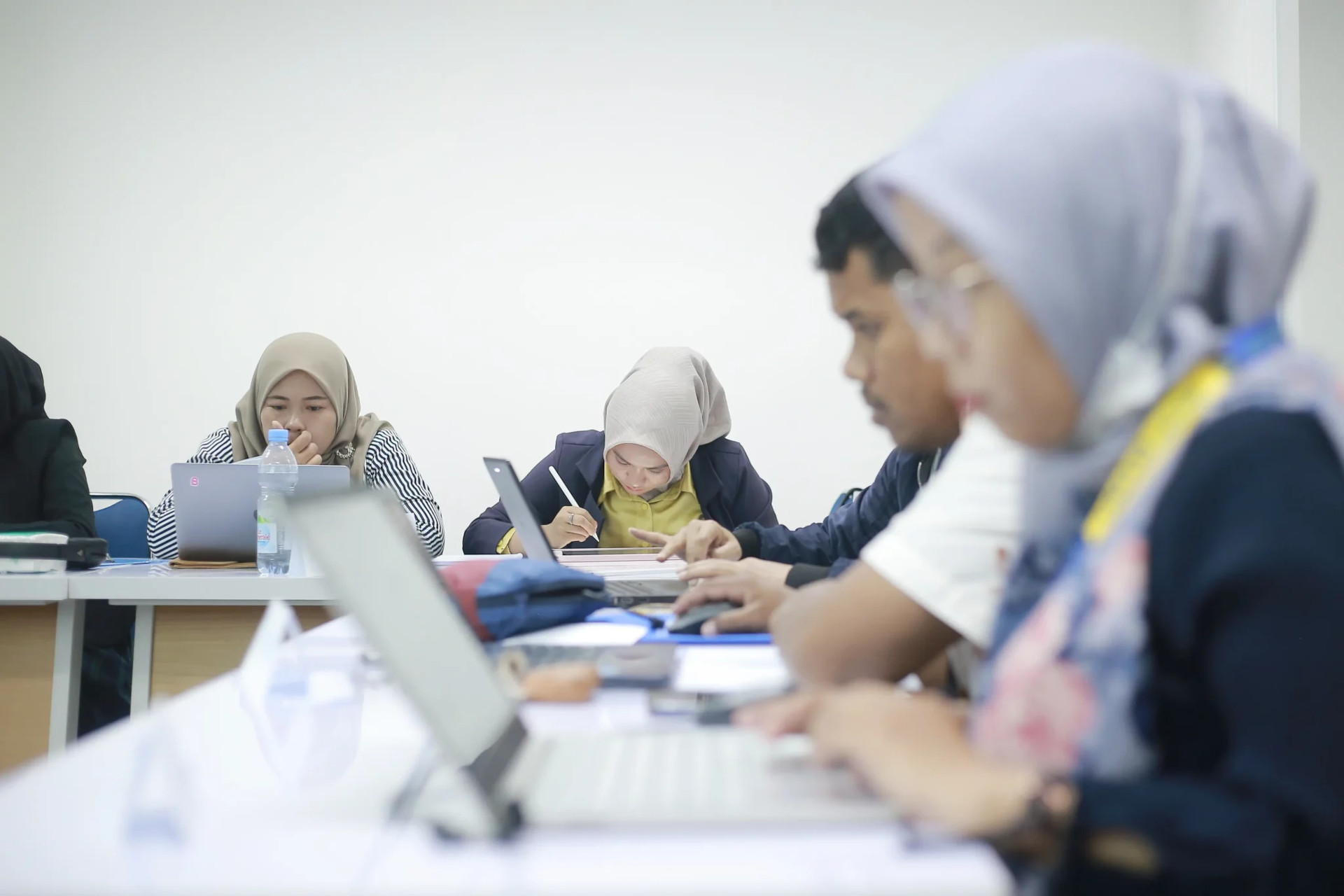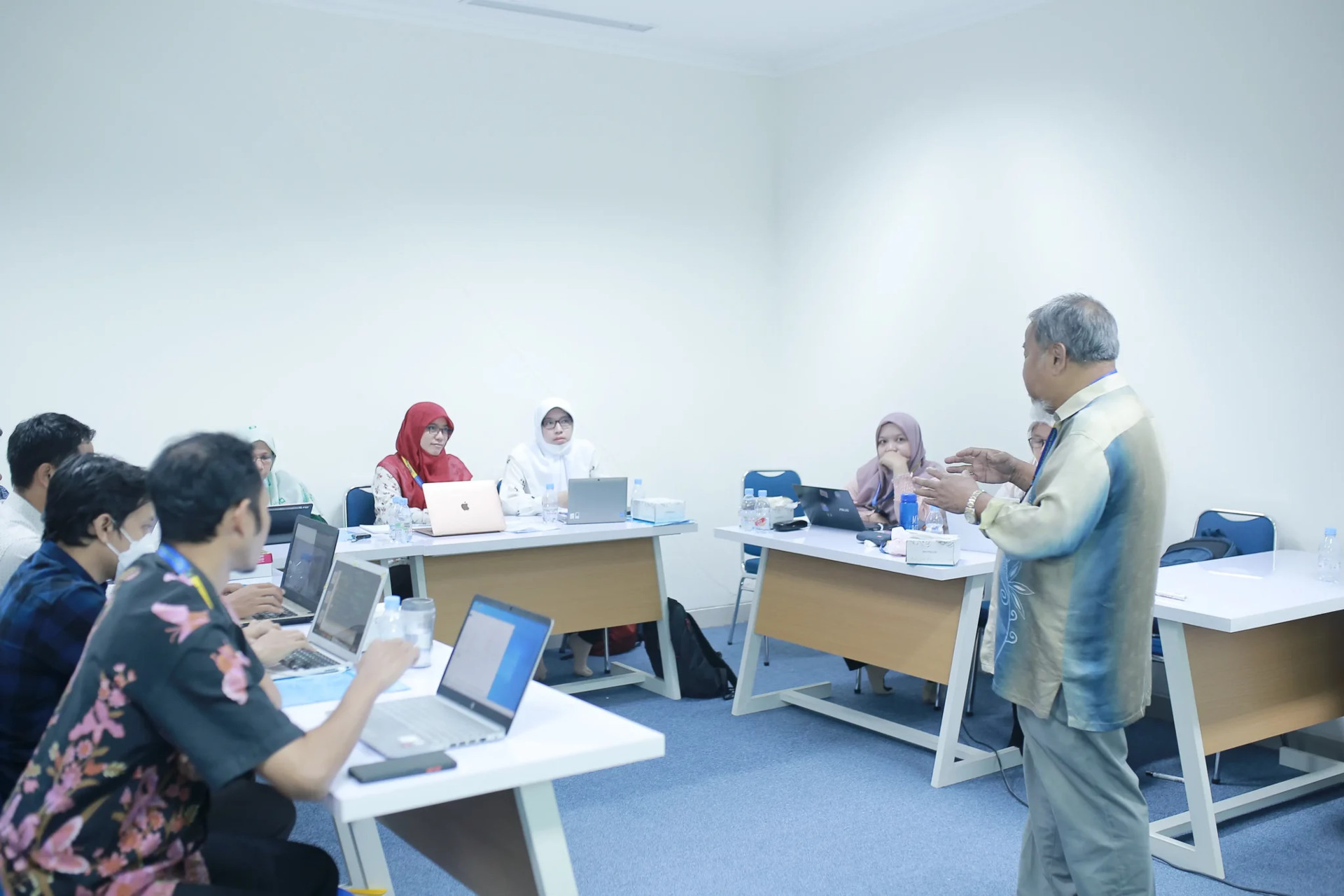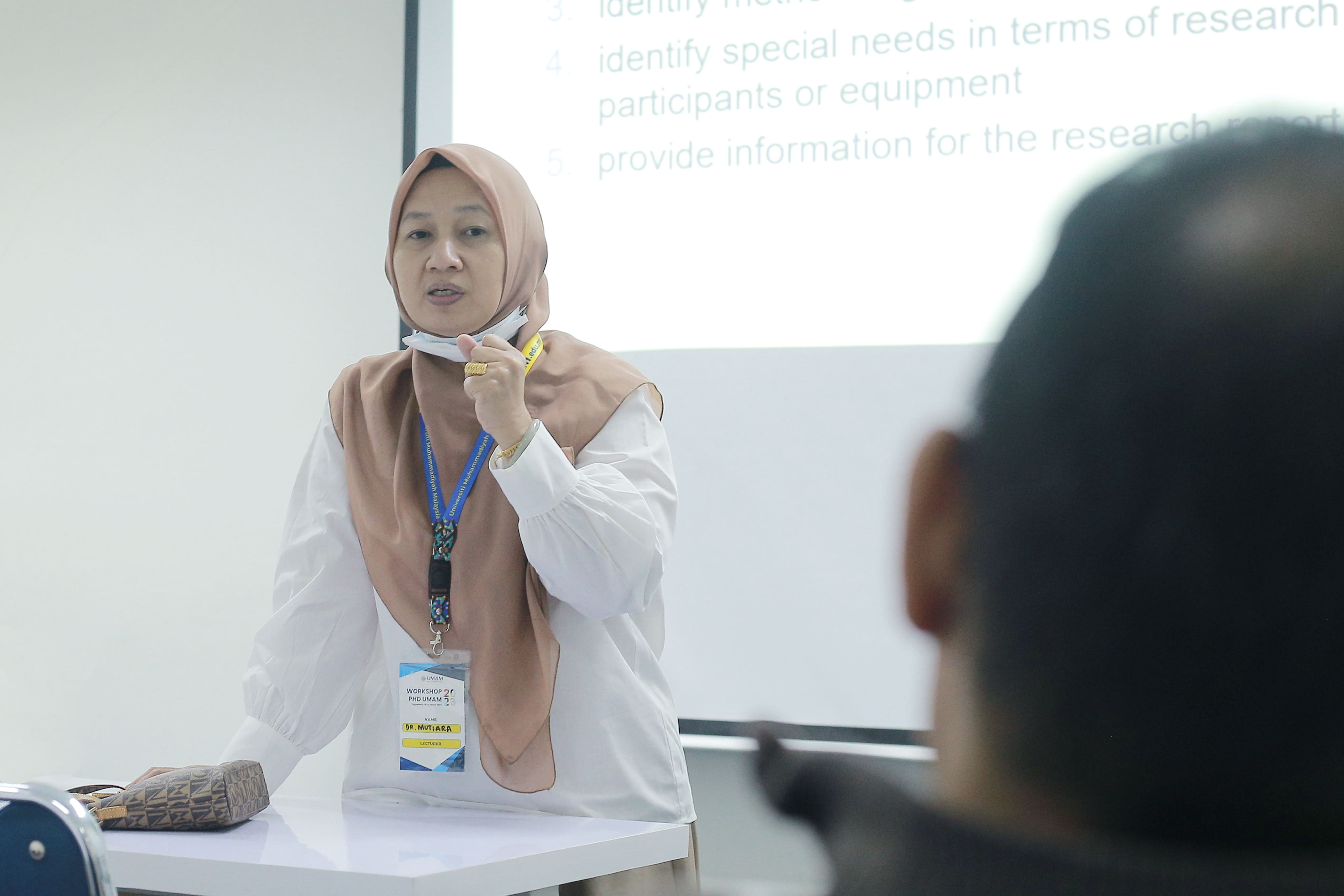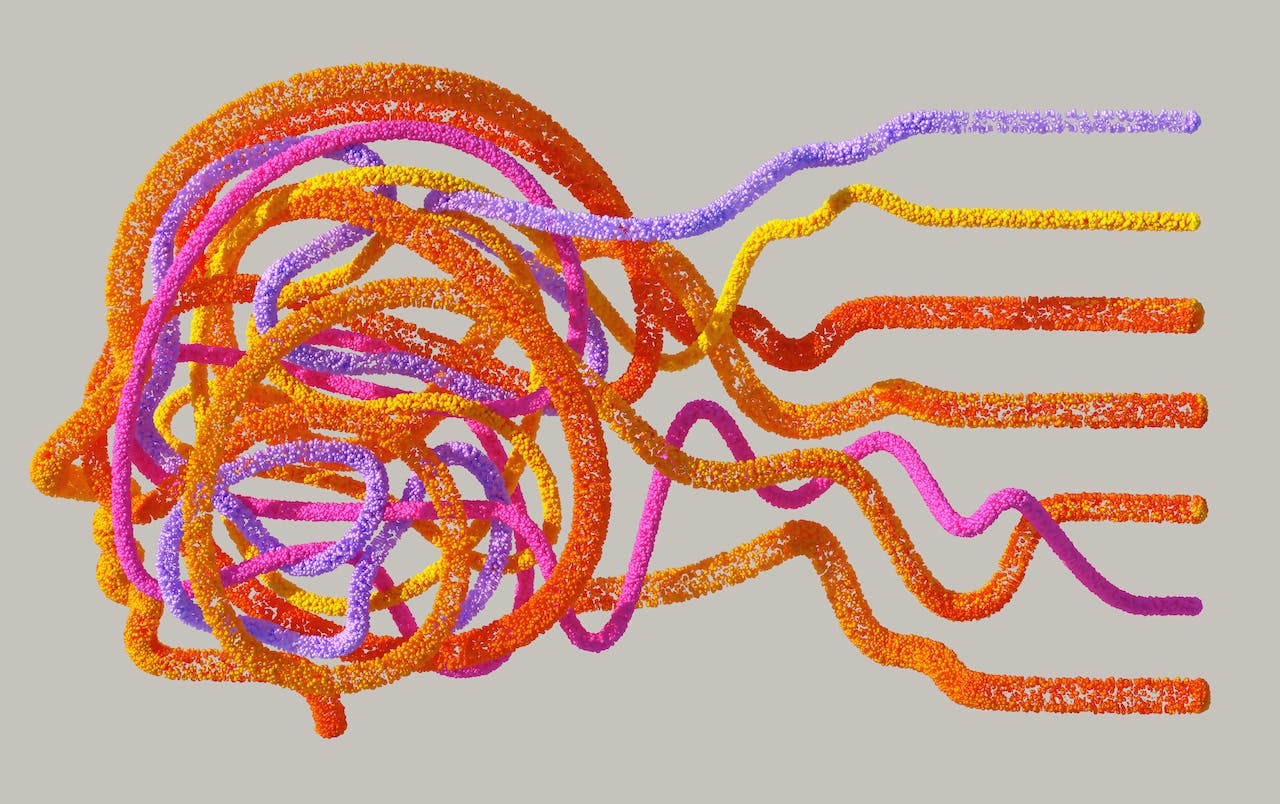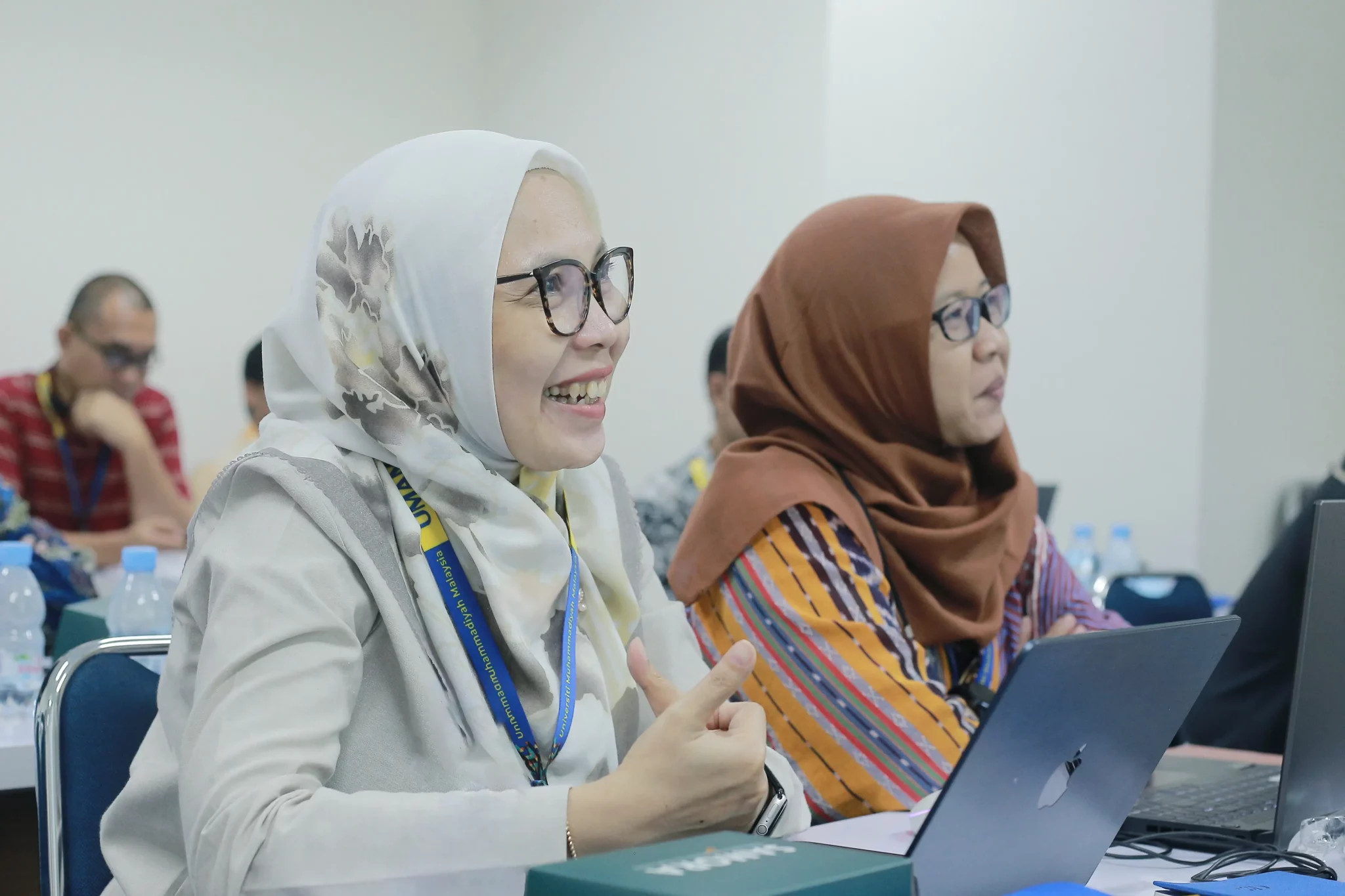
PhD in Information Technology
(By Research)
Accreditation: (N/0611/8/0001) (05/29) (MQA/PA 15446)
The programme enables students to advance themselves in their career in computing and information technology. It offers flexibility in the choice of topic of research so it may be closely aligned with students' professional careers.
Programme Educational Objectives (PEO)
(PEO1)
Computing practitioners who are competent with a firm grounding in computing fields to foster research and development of new knowledge in the fields of study
(PEO2)
Computing practitioners who lead in their areas of expertise and able to communicate convincingly and interact effectively with diverse stakeholders
(PEO3)
Computing practitioners having positive attitudes, actively engaging in lifelong learning activities and entrepreneurial mind-set for successful career
(PEO4)
Computing practitioners who uphold and defend ethical and professional practices in advancing the profession while maintaining self and profession integrity.
Programme Learning Outcomes (PLO)
(Knowledge and Understanding – MQF Domain 1)
Integrate knowledge through a systematic comprehension and in-depth understanding in the field of study
(Cognitive Skills – MQF Domain 2)
Develop original research work that broadens the boundary of knowledge through in-depth thesis that has been presented and defended according to international standards
(Cognitive Skills – MQF Domain 2 & Practical Skills – MQF Domain 3A)
Develop innovative computing solutions that stand the tests of usability, efficiency and effectiveness
(Interpersonal Skills – MQF Domain 3B & Communication Skills – MQF Domain 3C)
Communicate and interact effectively with peers, scholarly communities and society at large through publishing and presenting technical materials
(Digital Skills – MQF Domain 3D & Numeracy Skills – MQF Domain 3E)
Select appropriate numerical techniques and research methodologies to acquire, interpret and extend, knowledge in computing
(Leadership, Autonomy & Responsibility – MQF Domain 3F)
Demonstrate leadership, teamwork, autonomy and responsibility in conducting research based on computing theoretical framework
(Personal & Entrepreneurial Skills – MQF Domain 4)
Exhibit capabilities to extend knowledge through life-long learning with entrepreneurs mind-set related to the fields of study
(Ethics & Professionalism – MQF Domain 5)
Uphold professional and ethical practices in conducting research and delivering services related to the field of study.
First semester:
Compulsory Courses
- Academic Writing and Seminar (UMU1013)
- Research Methodology (UMU1023)
- Bahasa Melayu Komunikasi 1 (UMU1033) (Non-Malaysian student only)
- Research and Challenges in Modern Information Technologies (ITF1113)
Thesis Writing (Stage 1)
- Research proposal writing
Second semester:
Thesis Writing (Stage 2)
- Completing research proposal
- Research proposal should be approved maximum in one year.
Third – Sixth semester:
Thesis writing (Stage 3 - Stage 6)
- Viva-Voce of thesis defend examined by internal and external examiners.
- Prior to Viva Voce, at least two publications in SCOPUS indexed journal or conference proceedings.
Programme Duration (Full Time)
3 years (6 semesters)
Entry Requirements
- A Master’s degree (Level 7, MQF) in related fields as accepted by the Senate; OR
- A Master’s degree (Level 7, MQF) in non-related fields as accepted by the Senate, subject to having relevant working experience* and rigorous internal assessment**; OR
- A Master’s degree (Level 7, MQF) in non-related fields as accepted by the Senate and without relevant working experience, subject to passing pre-requisite courses***; OR
- Other qualifications equivalent to a Master’s degree (Level 7, MQF) recognised by the Malaysian Government.
- The University can take excellent Bachelor’s Degree (Level 6, MQF) graduates for direct admission to Doctoral Degree by Research (Level 8, MQF) programme with the following conditions:
- Students have first class Bachelor’s degree or equivalent qualification; or
- Students have obtained CGPA of at least 3.67 or equivalent from either an academic or Technical and
- Vocational Education and Training (TVET) programme; and
- Evaluated through rigorous internal assessment by the HEP; and
- Approved by the Senate and accepted as a candidate for the Doctoral Degree (Level 8, MQF) programme. Students must demonstrate appropriate progress during the candidature period.
Note:
* Experience can be cumulative experience even before acquiring required qualification for a particular level of study. However, the experience must be relevant to the level of study as well as the content.
*** The pre-requisite courses must equip the students with necessary business knowledge (managing people, managing financial resources, understanding customers, understanding environments and strategic planning) of one level lower than the programme level.
** Rigorous assessment to evaluate the suitability of an applicant for a programme through statement of purpose, interview and other methods may cover the following criteria:
- Demonstration of strong business experience, and that you have held significant managerial responsibilities.
- Evidence of any achievements in your professional life, for example, consistently performing at a high level, consistent career progression and any impact that you have had on your organisation.
- Professional skills that you have developed, for example, team work, leadership, problem-solving, negotiating and analytical skills.
- How you will contribute to your class and what experiences you can bring to the institution. (Lancaster University, 2021)
English Requirement
Achieve a minimum Band 4 in Malaysian University English Test (MUET) OR any equivalent to Common European Framework of Reference for Languages, CEFR (B2)
MYR 3,625/ Semester
(Local Students)
MYR 5,125/ Semester
(International Students)
Excluding immigration fees, insurance and dormitory.
Note:
- Student pass fees for international students are subjected to a determination under the Malaysian Immigration Department.
- Student insurance fees are subjected to the statutory provisions of the University and local authorities.
- Student accommodation fees are determined by university rules and are available upon request.

Mustafa Mat Deris
Professor
Education
Doctor of Philosophy (Ph.D.), Computer Science, Universiti Putra Malaysia (UPM), 2001, Malaysia.
M.Sc., Computing, University of Bradford, 1989, United Kingdom.
B.Sc. (Hons), Mathematics, Universiti Putra Malaysia (UPM), 1982, Malaysia.
mustafa@umam.edu.my
Current PhD Research Students |
|---|
Santosa (P5240010) Enhanced Recurrent Convolutional Neural Network for Text Classification |
Hendra Abdul Hamid (P5240017) - Mental Health Classification Using Data Mining with Principal Component Analysis to Support Decision Making |
Muhammad Sam'an (P5240012) - An Improved Grey Wolf Optimisation Algorithm for Feature Selection in P2P Lending Default Prediction |

Ku Ruhana Ku Mahamud
Professor
Education
Doctor of Philosophy (Ph.D.), Computer Science, Universiti Putra Malaysia (UPM), 1994, Malaysia.
M.Sc., Computing, University of Bradford, 1986, United Kingdom.
B.Sc. (hons), Mathematical Sciences, University of Bradford, 1983, United Kingdom. .
ruhana@umam.edu.my
Current PhD Research Students |
|---|
Nurul Huda (P5240024) Adaptive Hybrid Algorithm Based on Convolutional Neural Networks and Genetic Algorithms for Brain Tumor Image Classification |
Rendra Soekarta (P5240013) - Enhanced Classification Algorithm Based on Hybrid Haar Wavelet Gaussian for Face Recognition of Southwest Papua Ethnic |

Ika Safitri Windiarti
Senior Lecturer
Education
Doctor of Philosophy (Ph.D.), Electrical and Information Engineering, University of South Australia, 2016, Australia.
Master of Engineering (Advanced) in Telecommunication, Telecommunications Engineering, The University of Adelaide, 2009, Australia.
Sarjana Teknik (Bachelor of Engineering), Electrical Engineering, Universitas Gadjah Mada (UGM), 2003, Indonesia.
ika.windiarti@umam.edu.my
Current PhD Research Students |
|---|
Agung Prihandono (P5240018) - Adaptive Integration of Online Learning Using Artificial Intelligence |
Faridi (P5240009) - Renewable Energy Supply System Optimized Model for Smart City |
Irman Amri (P5240017) - The Impact of Information Technology on Socio Economic Progress in Southwest Papua: A Study of The Role of Technology |
Rachmat Destriana (P5240016) - Enhanced E-Recruitment Model Using Social Media Based on Togaf Framework |
Teguh Hidayat Iskandar (P5240019) - Hybrid Model Based on Artificial Intelligence and Augmented Reality for Interactive Learning. |
Hardian Oktavianto (P5240030) - Lexicon Based Aspect Terms Extraction & Sentiment Classification on Tourism Data |
Daryanto (P5240031) - Aspect Based Sentiment Analysis on Product Reviews for Consumer Preferences with Lexicon-Based Rule Optimization |
Course Duration
3 Years
Student Intake March and September
Other Programmes
In Preparation
MSc in Computing
MSc in Computing covers the expertise of Information Technology, Computer Science, Artificial Inellegence…
